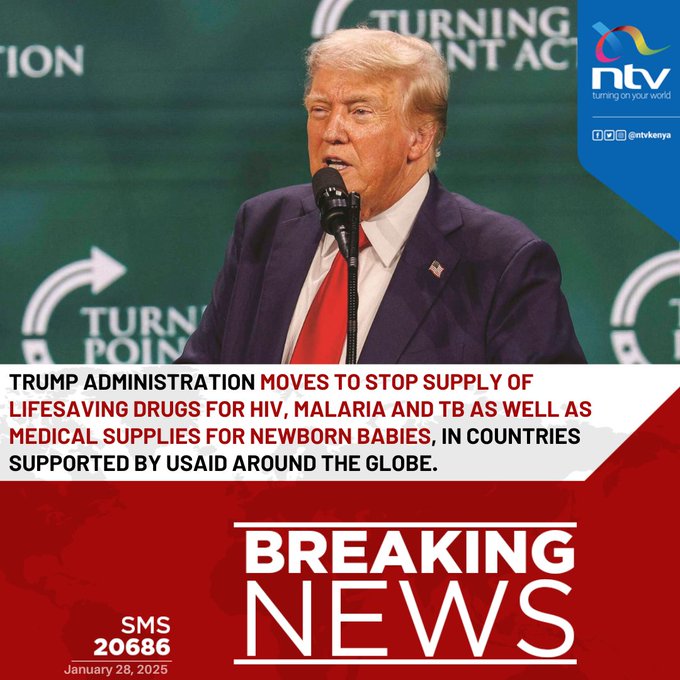NAIROBI, Kenya- Kenya’s fight against HIV and AIDS may be heading into uncertain waters.
Public Service Principal Secretary Amos Gathecha has confirmed that the government is actively searching for alternative funding sources amid concerns over the U.S. pulling out of the World Health Organization (WHO) Global Fund.
“We hope America won’t pull out of the WHO program because they are the biggest financiers,” Gathecha said. “But should they pull out, as a country, we have to get alternatives on funding.”
For Kenya, where millions depend on WHO-backed initiatives for HIV treatment, prevention, and awareness programs, the stakes couldn’t be higher.
President Donald Trump signs an executive order directing the US to withdraw from the World Health Organization, a decision that would cut off one of the international aid and disease response group’s largest funding sources trib.al/SPL8cAo
The U.S. has historically been the single largest contributor to global health programs, and a funding gap could significantly affect progress.
The latest concerns stem from Donald Trump’s recent executive order confirming the U.S. intent to withdraw from the WHO’s global health initiative.
This isn’t the first time Trump has threatened to cut ties with the WHO—back in 2020, he cited the organization’s alleged mishandling of the COVID-19 pandemic and its perceived bias toward China as justification for an exit.
WHO has expressed regret over the U.S. decision, but the organization remains open to dialogue in hopes of preventing a complete fallout.
The U.S. has been a key player in WHO efforts since its inception in 1948, contributing billions of dollars to combat infectious diseases worldwide.
With uncertainty looming, Kenya is now faced with a critical challenge: finding sustainable funding sources to support its HIV response programs.
The government is exploring domestic alternatives, international partnerships, and increased budgetary allocations to bridge any potential funding gaps.
The implications of a U.S. pullout extend beyond Kenya, affecting global HIV/AIDS programs that have relied on stable funding for decades.
While efforts to secure alternative resources are underway, the uncertainty surrounding global health funding underscores the need for more self-sustaining solutions in the long run.
If the U.S. follows through with its WHO exit, countries like Kenya will have to navigate a new reality in global health financing.




